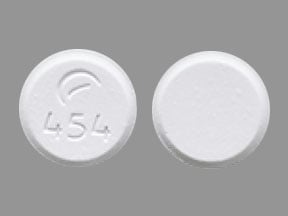
Exjade Coupons & Savings Card – Discount Prices from $129.30
Brand for: Deferasirox
My prescription
Edit
125MG, Deferasirox (30 Tablet Solubles)
Select pharmacy

CVS
$1228.46
COUPON PRICE
Walgreens
$129.30
COUPON PRICE
Albertsons
$194.53
COUPON PRICE
Walmart
$1028.76
COUPON PRICEExjade savings card
Show this card to your pharmacist
Walgreens
$129.30
BIN
ID
PCN
GRP
019876
LH191B4426
CHIPPO
LHX
Powered by
Related metal chelators prescriptions
More prescriptions for iron overload
Related metal chelators prescriptions
More prescriptions for iron overload
Exjade (Deferasirox) dosage forms
Dosage Quantity Price from Per unit 125MG 30 Tablet Solubles $129.30 $4.31 250MG 30 Tablet Solubles $99.30 $3.31 500MG 30 Tablet Solubles $195.30 $6.51
| Dosage | Quantity | Price from | Per unit |
|---|---|---|---|
| 125MG | 30 Tablet Solubles | $129.30 | $4.31 |
| 250MG | 30 Tablet Solubles | $99.30 | $3.31 |
| 500MG | 30 Tablet Solubles | $195.30 | $6.51 |
What is Exjade used to treat?
Exjade is used to treat chronic iron overload due to blood transfusions in patients with conditions such as thalassemia, sickle cell disease, and other anemias. It is also used to treat chronic iron overload in patients with non-transfusion-dependent thalassemia syndromes.
Is Exjade toxic to the liver?
Yes, Exjade (deferasirox) can be toxic to the liver. It has been associated with liver function abnormalities, including elevated liver enzymes and, in some cases, more severe liver injury. Regular monitoring of liver function tests is recommended for patients taking Exjade to detect any potential liver issues early. If significant liver abnormalities are detected, discontinuation or adjustment of the medication may be necessary.
How much does Exjade cost?
The cost of Exjade can vary significantly based on factors such as the pharmacy, location, insurance coverage, and dosage required. It is recommended to check with local pharmacies or consult with a healthcare provider or insurance company for the most accurate and up-to-date pricing information.
Is deferasirox available over the counter?
Deferasirox is not available over the counter. It is a prescription medication and should be used under the supervision of a healthcare provider.
What are the side effects of Exjade 500 mg?
Exjade (deferasirox) 500 mg can cause several side effects. Common side effects include nausea, vomiting, diarrhea, abdominal pain, and skin rash. Some patients may experience an increase in serum creatinine, indicating potential kidney issues. Less common but serious side effects can include liver problems, gastrointestinal bleeding, and hearing or vision changes. It is important for patients to have regular monitoring of kidney and liver function, as well as hearing and vision tests, while taking Exjade. If any severe or unusual symptoms occur, it is advised to contact a healthcare provider promptly.
